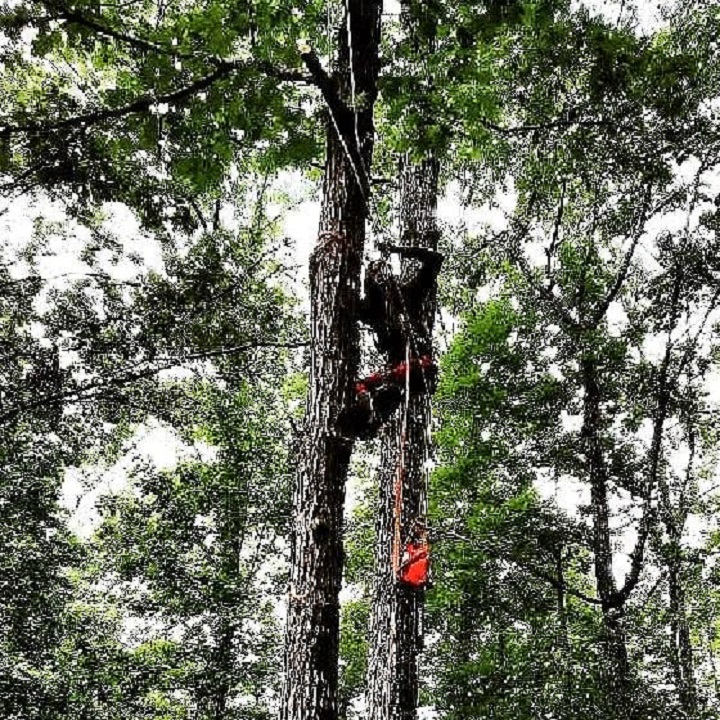Tree Care Tips and Facts
by siteadmin

Care of trees requires both time and dedication. By keeping grass and weeds out of their root zone, protecting trunks from lawnmowers' blades, and monitoring for signs of damage regularly, you can keep your trees healthy.
Watering trees is essential to their health, but too much moisture may also prove detrimental. Check the soil regularly to make sure it remains moist but not soggy!
1. Trees need water
Northern Alabama trees require plenty of water in order to flourish. Regular watering will promote deep root growth while also avoiding "water stress", which can result in root rot, insect infestations or diseases in trees.
Young and newly planted trees should be watered daily for the first few weeks following planting, while mature ones need five to ten gallons per inch of trunk diameter per week – it's best to water slowly and deeply so as not to oversaturate the soil with too much moisture.
Watering young and newly planted trees, particularly before their leaves emerge and break bud, is of particular importance in the spring. Bumping into them with lawnmowers or weed eaters can damage their bark, leading to infection and pest issues; stakes or wrapping the base of the tree will help avoid this damage.
2. Trees need sunlight
As with other plants, trees require sunlight in order to survive and thrive. Sunlight allows photosynthesis – which produces nutrients necessary for their existence while producing oxygen as an offshoot – to function. Without enough light exposure, trees become weaker and may fall during storms.
Before selecting trees for your landscape, it is important to take into account their full-grown size and sun requirements before planting any species. Some trees thrive best under shade while others need full or partial sun for growth.
Trees planted too closely can block out enough light for photosynthesis to take place, eventually harming or even killing them. At the same time, cutting large branches off healthy trees indiscriminately (known as topping) is stressful to the plant and can lead to diseases and insect infestations; but with professional pruning by an arborist can prevent this from happening and keep their canopy open so rainfall and sunlight enter rather than creating damp conditions conducive to fungal growth.
3. Trees need air
When investing time and money into trees, it makes sense to give them every chance at flourishing. That means attending to their basic needs like water, sunlight and air.
As part of your tree care routine, it's wise to observe them regularly so you can quickly notice any changes early. Discolorations and stunted growth could indicate potential trouble spots; sooner you catch these issues the better off they will be!
As part of an overall approach to helping trees flourish, it's also important to avoid selectively cutting large branches (known as "topping"). Doing this places an undue strain on the tree and makes it susceptible to diseases and decay; any new smaller branches could also be more vulnerable in storms. Also essential is maintaining your trees' bark intact as this acts as natural protection from infections and diseases – regular mowing or weed whacking could leave it damaged, while road salt can harm those trees that don't tolerate salt.
4. Trees need fertilizer
Newly planted trees should be watered regularly to establish deep root systems and enhance nutrient uptake. Make sure the water seeps down into the soil to reach the roots; install a soaker hose if necessary for this process; and add mulch as a moisture retainer and to curb weed growth.
Mature trees usually don't require fertilizers unless there is a nutritional deficiency present. Feeding too much nitrogen at once could actually harm it by forcing its reserves down further and leading to more stress on its system. Therefore, soil tests are the best way to determine whether there may be deficiencies.
Removing leaves and debris that accumulate under and around trees is key to protecting against diseases and pest infestation. Receiving regular inspections by an ISA Certified Arborist can detect potential issues early and provide timely solutions that could save the tree. Don't forget about scheduling your annual dormant spray either – it is an invaluable way of protecting their health during winter!
Tree Care Facts and Tips by All Pro Huntsville Tree Service https://huntsvillealtreeservice.com/ Our company is a highly trusted and reliable Huntsville tree service provider. Feel free to contact us with any tree care or tree service questions you may have. Tree Removal Tree Trimming Stump Removal and Stump Grinding.
Care of trees requires both time and dedication. By keeping grass and weeds out of their root zone, protecting trunks from lawnmowers' blades, and monitoring for signs of damage regularly, you can keep your trees healthy. Watering trees is essential to their health, but too much moisture may also prove detrimental. Check the soil regularly…
Recent Posts
- Affordable Fencing Solutions: Fence Company Rochester NY Offers Insight on the Cheapest Fence Installations in Rochester, NY
- Affordable Fencing Solutions: Fence Company Rochester NY Offers Insight on the Cheapest Fence Installations in Rochester, NY
- Expert Roofers Columbus Shares Insights on the Roofing Installation Process in Columbus, GA
- Mastering Tree Removal: A Comprehensive Guide for Tree Care in Fairfax
- Mastering Tree Removal: A Comprehensive Guide for Tree Care in Fairfax
